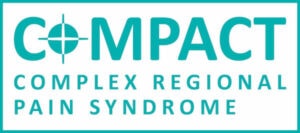This work was driven by a mutual desire to advance the understanding of the mechanisms and management of Complex Regional Pain Syndrome (CRPS).
For many years, some of us working in the field of CRPS have been frustrated by the challenges of synthesising research evidence. Specifically, the absence of an international, standardised set of outcome measures has made cross study comparisons and interpretation of results difficult. For example, our systematic review conducted in 2014 demonstrated that CRPS clinical studies used a diverse range of questionnaire outcome measures; with 68 different questionnaire outcome measures identified across the 104 studies included [1]. The multi-faceted nature of CRPS may contribute to this diversity. Furthermore, in 2016, we conducted an international survey of research-active health professionals and found that a range of 20-36 different outcome measures were used to capture each of the constructs of pain, physical function, emotional and psychological function, and quality of life in CRPS studies [2].
To address this challenge, in 2013, we established an international consortium of patients, clinicians, researchers and industry representatives. The aim was to agree upon a minimum core set of questionnaire outcome measures which would be recommended for use in all CRPS clinical studies in an adult population, and would facilitate the pooling and comparison of data. This really was a global, collaborative effort from those with an interest and expertise in CRPS. The consortium currently comprises over 55 representatives from 16 countries. COMPACT is led by Professor Candy McCabe and Sharon Grieve from the Royal United Hospitals NHS Foundation Trust in Bath, UK.
Over the past 3½ years, a series of four workshops have been convened to agree upon the core set of outcome measures (COMPACT) through an iterative process of consensus. Workshop attendees comprised consortium members and included patients, representing several countries, who ensured that the resultant core measurement set was pertinent to their experience of the condition. In addition to the workshops, our members conducted supplementary work including focus groups, teleconferences, and supporting publications to underpin our work.

We have recently published the first version of the core measurement set (COMPACT) [4]. COMPACT uses a number of patient-reported questionnaires to capture the domains of: pain, disease severity, participation and physical function, emotional and psychological function, self-efficacy, catastrophizing, and patient’s global impression of change. One clinician reported outcome measure captures the degree of severity of CRPS (CRPS Severity Score, CSS)].
We recommend COMPACT is routinely added to any future clinical trial, as an adjunct document, or included within clinical cohort studies. Researchers will need to contact us at ruh-tr.compact@nhs.net if they wish for their data to be included in the main COMPACT registry.
Our recommendation is for COMPACT to be completed by all patients with a diagnosis of CRPS I or II, at two time points, baseline, and 6 months. This was informed by a recent study by Bean et al (2016) demonstrating that the greatest change in symptom severity was in the first 6 months after CRPS onset [5]. Baseline can be at any point in their CRPS journey. Additional assessments at 3 and/or 12 months are optional, and the CSS should be completed at baseline as a minimum. We acknowledge there may need to be flexibility within these recommended time points to meet the requirements of future studies.
COMPACT will be used to help answer our research question “What is the clinical presentation and course of CRPS and what factors influence it?” Our question could not be answered without international collaboration and consistent data sets which makes instantiation of COMPACT recommendations both important and urgent. Answers to questions such as ours will enable a greater understanding of the potential phenotypes of CRPS, prognostic indicators, and methods of directing treatments for maximal efficacy.
We will commence a feasibility and acceptability study to test the practicalities of using COMPACT in the international CRPS population. Alongside this we will be developing an appropriate electronic data management system to support data capture. While we are setting up COMPACT, it is important that researchers seek permission to use some of the questionnaire outcome measures within the core measurement set (COMPACT). In addition, specific standard permissions and procedures may be required when wishing to translate the questionnaire outcome measures. It is the researcher’s responsibility to ensure that all the necessary permissions are in place. We will let you know when you can access COMPACT from us directly.
We could not have completed the development of COMPACT without the support of our funders; The Balgrist Foundation, Balgrist University Hospital, Switzerland, and the Dutch National CRPS Patient Organization, Netherlands. We are also indebted to our COMPACT members whose commitment and passion for this project made it possible.
About Sharon Grieve
 Sharon Grieve is a nurse with a MRes in Clinical Research. She lives in Bath, UK and is the Pain Lead Research Nurse for the national Complex Regional Pain Syndrome service and an Honorary Research Fellow at the University of the West of England. Sharon co-leads the COMPACT study with Professor Candy McCabe.
Sharon Grieve is a nurse with a MRes in Clinical Research. She lives in Bath, UK and is the Pain Lead Research Nurse for the national Complex Regional Pain Syndrome service and an Honorary Research Fellow at the University of the West of England. Sharon co-leads the COMPACT study with Professor Candy McCabe.
References
[1] Grieve S, Jones L, Walsh N, McCabe C (2015) What outcome measures are commonly used for complex regional pain syndrome clinical trials? A systematic review of the literature. Eur J Pain. 20:331–40.
[2] Grieve S, Manns S, Glanville V, Llewellyn A, McCabe C (2017) A survey of questionnaire outcome measures currently used in Complex Regional Pain Syndrome clinical trials. British Journal of Pain. 11(2, S1)
[3] Packham T, Bean D, Johnson MH, MacDermid JC, Grieve S, McCabe C, Harden RN. Measurement properties of the SF-MPQ-2 Neuropathic subscale in persons with CRPS: validity, responsiveness and Rasch analysis. Paper under review.
[4] Grieve S, Perez, RSGM, Birklein F, Brunner F, Bruehl S, Harden RN, Packham T, Gobeil F, Haigh R, Holly J, Terkelsen A, Davies L, Lewis J, Thomassen I, Connett R, Worth T, Vatine J-J, McCabe C (2017) Recommendations for a first Core Outcome Measurement set for complex regional PAin syndrome Clinical sTudies (COMPACT). Pain. 158(6):1083-1090
[5] Bean DJ, Johnson MH, Heiss-Dunlop W, Kydd RR (2016) Extent of recovery in the first 12 months of complex regional pain syndrome type-1: a prospective study. Eur J Pain 2016;20:884–94.



